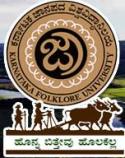
Folklore is not a mono-themed discipline. It is indeed a Knowledge - domain that includes every conceivable subject matter related to man and his life. Realistically, Folklore is not something like a readymade material that was lost at some point of time in the past. Instead it is a continual process that keeps evolving and recreating in response to the contemporary pulls and pressures. By way of interpreting this process we need to understand our society and the life of our people, while engaging ourselves in this all important enterprise a new programme of holding dialogue with Folklore has, due to globalization, been compelled to set in motion but while doing so it should not be treated just as a mere subject of study and there by attempting to render it lifeless. And the dialogue has now been going on being supported by modern science and technological aids. In the light of the apprehension that globalization might destroy the sources of our indigenous wisdom and culture the necessity of awakening our in bred self-consciousness through our home-grown culture is now strongly felt. If on the one hand globalization backed by the jazzy modernism is trying to overpower the local cultures, Folklore, on the other hand, to thwart its move, is exhibiting its trends of expansion from the source of its origin. In this context it is being interpreted that the roots of Folklore are in the sources of nature where as globalization is a concept of progress based on material development.
Based on such conceptual models as stated above we have to construct the unique attributes of our Folklore in the light of global advancements. It is the considered opinion of scholars that the Folklore of a country can be explained based on its geography, history, sociality, generality, ethics, creativity and mutuality. As opposed to this, free trade, unbridled capital investment, monopoly and dynastic monopoly have been identified as the features of globalization. In the light of all these developments it has been observed that scholars have transformed the studies in Folklore into insightful criticism of human society. It has been found that this is necessary to safeguard the health and harmonious living in society.
Quite a large number of cultural intellectuals hailing from the rural background and in some cases new age academic intellectuals have now been engaged seriously in the study and teaching of Folklore. Taking note of the studies made so far in Folklore at the international levels these scholars have been in the same vein attempting to interpret our own indigenous culture. This was the model followed by J.S. Paramashivaiah. Large is the number of scholars who followed his model. In fact he was the pioneering source of inspiration for all the present spirit and enthusiasm to promote studies in Folklore. As a result of this University of Mysore, Karnatak University, Gulbarga University, Kuvempu University, Bangalore University, Mangalore University, Kannada University and also in other Folklore study circles have now engaged themselves in meaningful research and study. Consequently people have now begun to emphasise the good and bad effects of modern science and technology as also our chief concerns like the environment conservation and reassessment of our culture. When we look at the path-breaking studies made into field of Folklore in Karnataka it is a fact that many scholars at various levels have now engaged themselves in its study expanding its scope and perspective. It is also a fact that in Karnataka alone, when compared to the rest of India, so much of involvement and concern has been seen noticeable in studying Folklore. And yet we should not forget the path to be covered is pretty long and lengthy. Instances related to Folklore which have come to light and instances still in the dark and also newer subjects and neglected areas need to be studied and understood more fully.
To our students the non-availability of the knowledge about the different facets of Folklore will only render their studies fractured and incomplete. Consequently their interest and the area of their studies will never expand. If the interest and commitment in the Folklore studies being expressed overtly in Karnataka need to be founded on a solid base writing and publication of complementary works and critical editions need to taken up on a large scale. And also preparation should get underway for the establishment of an exclusive full-fledged library for the Folklore having a wider reach.
The Folklore University need to be concurrently territorial and also Universal. Folklore is described as man-made material-centric culture. It is a science also which examines both oral and inherited traditions placing them now in their contemporary locale. The process of Folklore creation that keeps taking form and shape at the formal level needs to be brought within the perview of some kind of academic discipline and the knowledge so obtained re-examined and the lives of the people who create it studied and understood besides elevating their standard of living. Time has now come to treat the creators/producers of Folklore as the sources of information and the authentic folk speakers by giving up our attitude of looking at them in isolation but accepting them as skilled artists. Work in the direction of enhancing the assimilating capabilities of these talented folklorists needs to be augmented. And also not restricting their genius to the boundaries of castes but by way of giving training to them expose their genius to the environments of a casteless society.